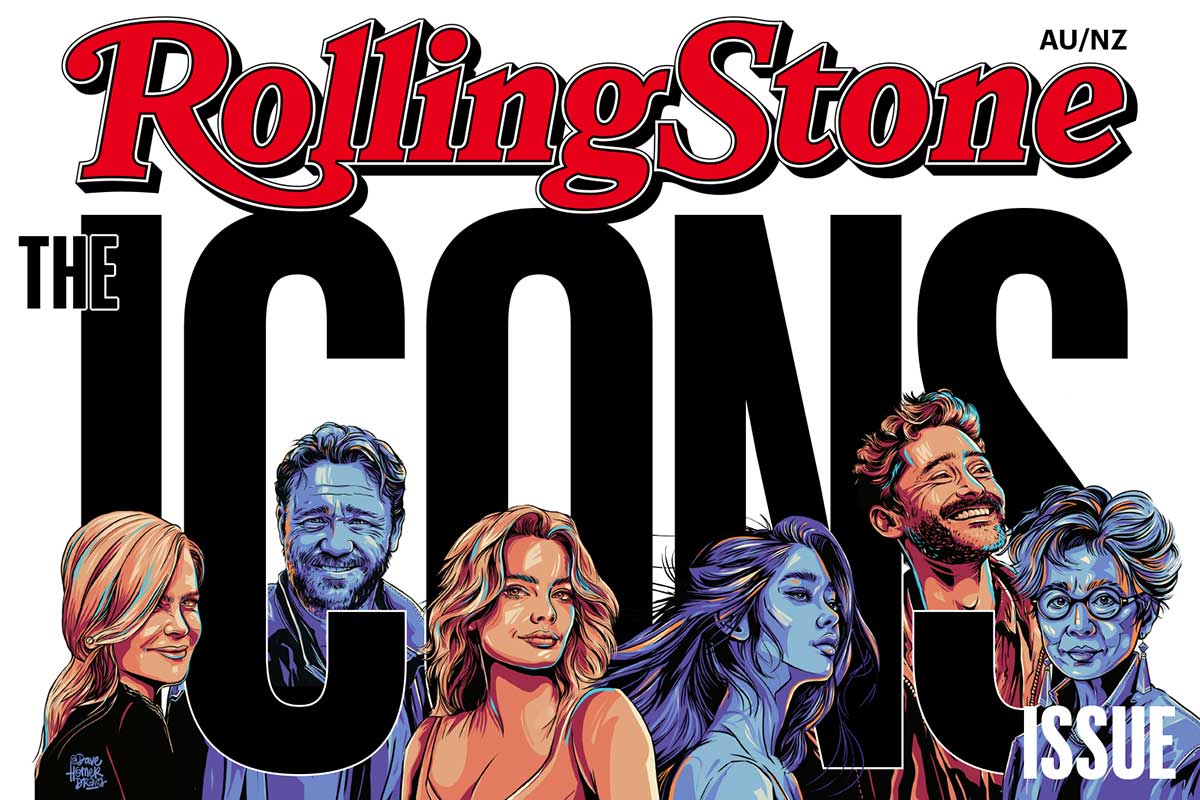Rolling Stone’s Icons Issue: An Antipodean Odyssey
What makes a celebrity an icon? It’s not just talent; it’s a magnetic charisma, enduring influence, and that unmistakable Antipodean spirit that sets them apart. In this exclusive collector’s edition of Rolling Stone AU/NZ, we embark on a journey across the Southern Hemisphere to unveil the 50 most iconic stars of Australia and Aotearoa.
In the realm of music, we delve deep into the anthems that have resonated with Aussies and Kiwis for generations. From a rock god who’s electrified stages to a pop princess who’s touched our hearts, we explore the artists who’ve woven themselves into the fabric of our unique pop culture — a culture that continues to cross borders.
The silver screen has its own share of luminaries, those who’ve left an indelible mark on our screens, and in many cases, around the world. We celebrate the actors who’ve made us laugh, cry, and question, as well as those whose career-defining performances have become timeless classics.
And let’s not forget the comedians who’ve had us in stitches, revealing a unique and homebrewed brand of humour, reflective of our local sensibilities. Their laughter echoes through the comedy clubs and airwaves, connecting us all in shared hilarity.
These names of these 50 icons are etched into the cultural history books — here and abroad — and continue to inspire the next generation of icons.
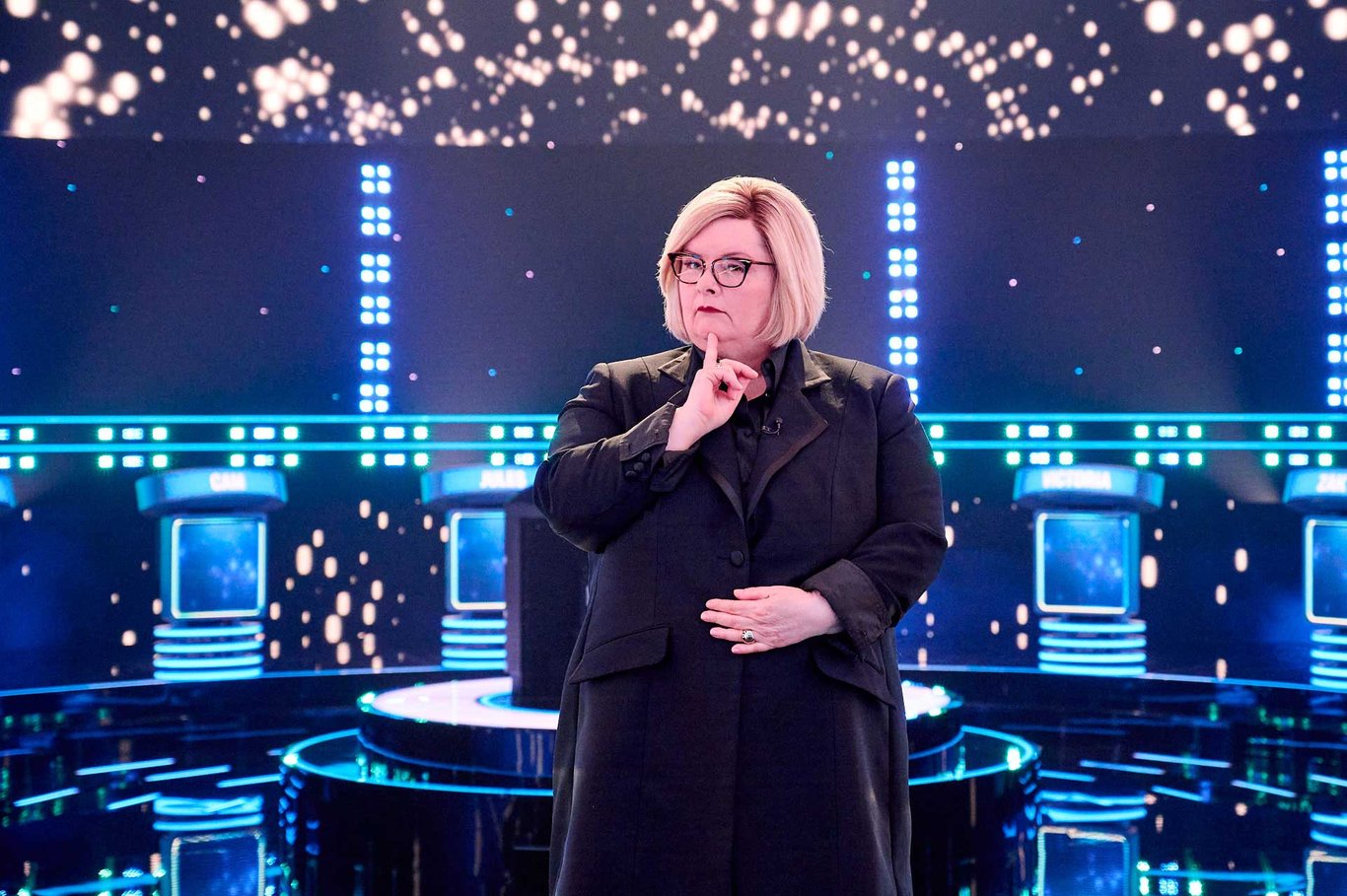
Magda Szubanski
By: Alice Clarke
It’s hard to imagine comedic television in Australia without Magda Szubanski.
Her impact is difficult to overstate after nearly forty years on Australian screens. Her time on The D Generation, Fast Forward, and later Full Frontal, changed the way people spoke to each other and engaged with Australian humour. And who could forget her role as Esme Hoggett in Babe?
But it was her role as Kim’s second-best friend, Sharon Strzelecki, that made Szubanski one of the most recognisable and trusted people in the country. During that time (2003–2004) her Q Score (a measure of how recognisable and well-liked a person is) was the highest in the country.
The recognition came because she was on one of the most famous Australian TV shows of this century (which the Americans have only recently discovered), but it was her inherent warmth and likability, and her quick wit that helped make Kath and Kim work. It’s also why she’s been such a successful activist.
In 2012, Szubanski came out on live television, and then for the next five years tirelessly advocated for marriage equality with kindness, patience, and a steely resolve. Her words were frequently quoted throughout the campaign and many marriage equality advocates have stated that her support and campaigning were crucial to the efforts of the ‘yes’ vote.
Like many very funny people, Szubanski was born into a family coping with trauma. Her memoir, Reckoning, released in 2015, opens with one of the best first sentences from a book: “If you had met my father you would never, not for an instant, have thought he was an assassin.”
Szubanski is still acting and hosting funny and important things, with perhaps her most vital recent work being Magda’s Big National Health Check, which shone a light on Australia’s failing health.
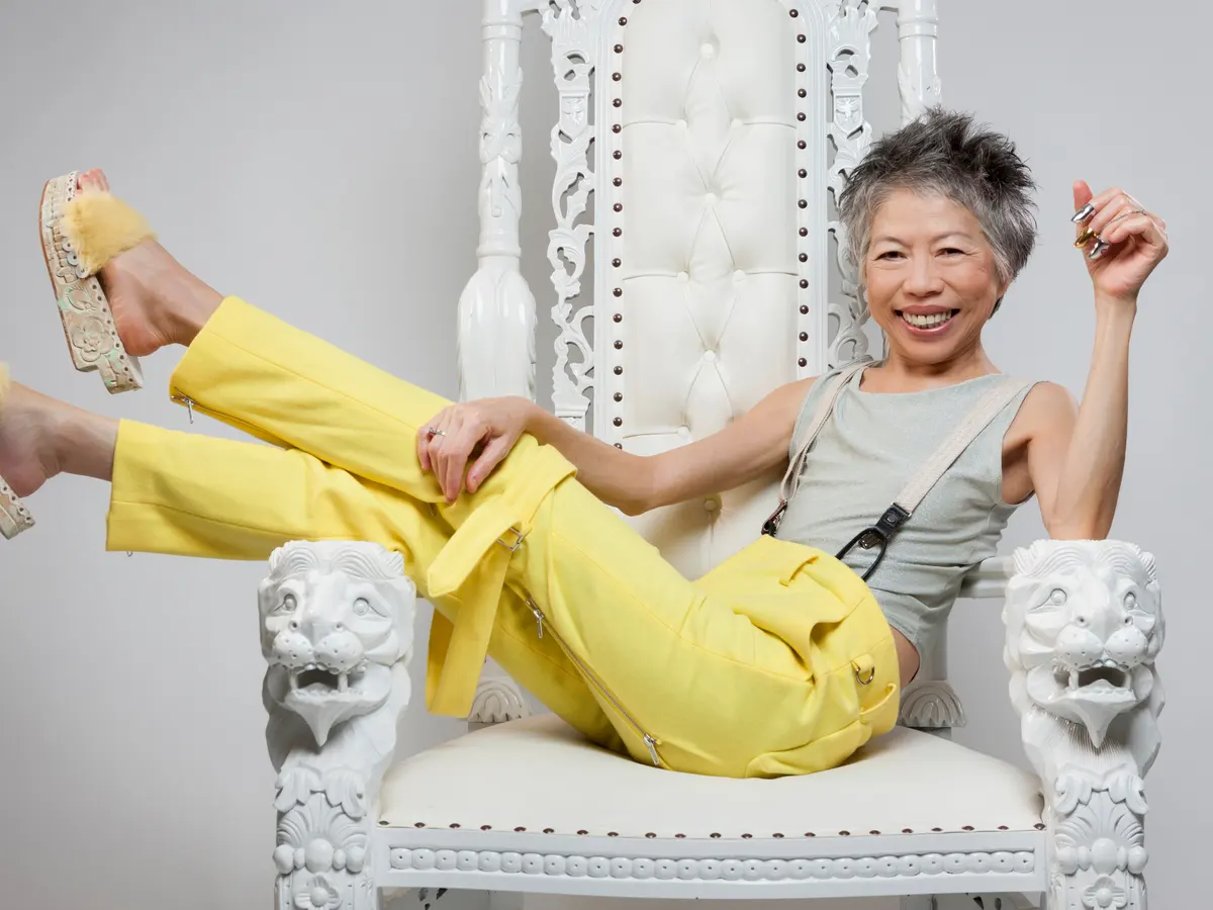
Lee Lin Chin
By: Zanda Wilson
Lee Lin Chin is a national treasure.
Best known as the former long-serving host of SBS World News from 1992 until 2018, Lee Lin Chin is a national treasure and the first SBS personality to be nominated for the Gold Logie in 2016. Her time at SBS meant Chin was a household name before she began to make her unique and often hilarious personality a bigger part of her public persona in the 2010s.
It was when she began to appear on SBS’ ground-breaking comedy and current affairs program The Feed that Chin was introduced to a whole new, younger audience. Presenting as a caricature of herself on comedy segments like Pranked with Lee Lin Chin and Celebrity Chin Wag catapulted her to cult popularity. One viral sketch, an Anchorman-style death-match where she starred against rival TV personalities, and in which she declared “Less gabbing and more stabbing!”, had us craving more.
When Chin began tweeting on topical issues from her own handle, her cult gained an even greater following. Over a couple of peak years, Chin threatened to “cut up a Stefanovic” and declared her distaste for “random penises walking around my apartment", though the Sydney Morning Herald has suggested that a producer from The Feed may have had a hand in her social presence at this time.
Her place in meme culture hasn’t been limited to Australia, and an odd connection with US producer Dillon Francis led to an improbable co-authored Triple J Mixup Set in 2016. Francis would go on to name his entire 2016 Australian tour We Are All Lee Lin Chin, even branding tour assets with his face superimposed over hers. It’s these truly remarkable moments that show how deeply Lee Lin Chin has permeated pop culture.

Kylie Minogue
By: Paul F. Verhoeven
Talk about a glow-up.
On Friday, July 11th 1986, a young Kylie Minogue bravely stepped onstage at the Fitzroy Football Club and belted out a cover of a peppy little track called “The Loco-Motion’’ as an encore at a charity gig. The very next year, Mushroom Records signed her on. Now, over eighty million record sales later, she’s the highest-selling female Australian artist of all time.
And given that she came to fame playing a character called Charlene, her explosive career trajectory feels uniquely Australian. Musically, Kylie is at once kinetic and effortless. Always has been. Her Eighties output provided us an array of perky, chintzy, almost campy pop confections along the lines of “I Should Be So Lucky”. But there was always a lack of ego on show — a humility which is almost impossible to fake.
Kylie has always possessed a decidedly girl-next-door quality, but she’s also utterly fearless. Never afraid to take a hard, artsy pivot, in 1996 she teamed up with Nick Cave to sing a duet about a woman who gets killed with a rock. Not exactly on-brand, but when did someone as chameleonic as Kylie ever give a damn about being on-brand?
She gave a nod to her past incarnations with “Did It Again”, then swerved joyously into the realm of pop-disco. “Kids” with Robbie Williams? “Spinning Around”? “Can’t Get You Out of My Head”? God-tier bangers. Sure, she’s an Officer of the Order of Australia and an Officer of the Order of the British Empire. Yes, she’s a gay icon. And yes, she’s back with her phenomenal new album Tension, featuring the ear worm of the decade, “Padam Padam”. But let’s be honest. When you’ve won the room at the Fitzroy footy club, everything else is a breeze.

Kevin Parker
By: Lars Brandle
Sometime during the 2010s, Kevin Parker made the jump from Western Australia to the stars. And he did it all on his own.
Although Kevin Parker’s project Tame Impala has won best group at The Brit Awards (2016), and the ARIA Awards (most recently in 2020), the thirty-seven-year-old is very much a one-man band. Parker writes and records all the parts, and produces the music of Tame Impala; which has included albums Innerspeaker (2010), Lonerism (2012), Currents (2015), and most recently The Slow Rush (2020) [he does, however, recruit a band when Tame Impala hits the road]. Along the way, Parker has collected thirteen ARIA Awards, two APRA Awards, a number one on triple j’s Hottest 100 of the year (2015) and decade (2010s) with “The Less I Know The Better”. And in the UK in 2016, Parker took out that Brit Award for Best International Group, defeating the likes of Alabama Shakes, Eagles of Death Metal and U2.
Each of Parker’s wins are a victory for the quiet ones among us. Parker is naturally introverted. In a sliding doors moment during his early teens, Parker’s late father discovered the youngster’s stash of pot paraphernalia and cut the kid off from his friends. That harsh punishment saw Parker pivot, and turn his attention to music. Parker’s poor social life worked out well for the rest of us, as his music made ripples, then waves around the globe. Tame Impala’s early sounds, a visit to psychedelic rock, with shades of early Pink Floyd — before coming up to the light for a psych-pop sound — has caught the attention of frontline artists who’ve clamoured for his production talents. Parker has worked with the likes of Mark Ronson, Lady Gaga, Rihanna, Kanye West, Travis Scott, Melody's Echo Chamber, and The Flaming Lips, and remixed a cut for Gorillaz’ Cracker Island, which went to Number One in the UK in 2023.
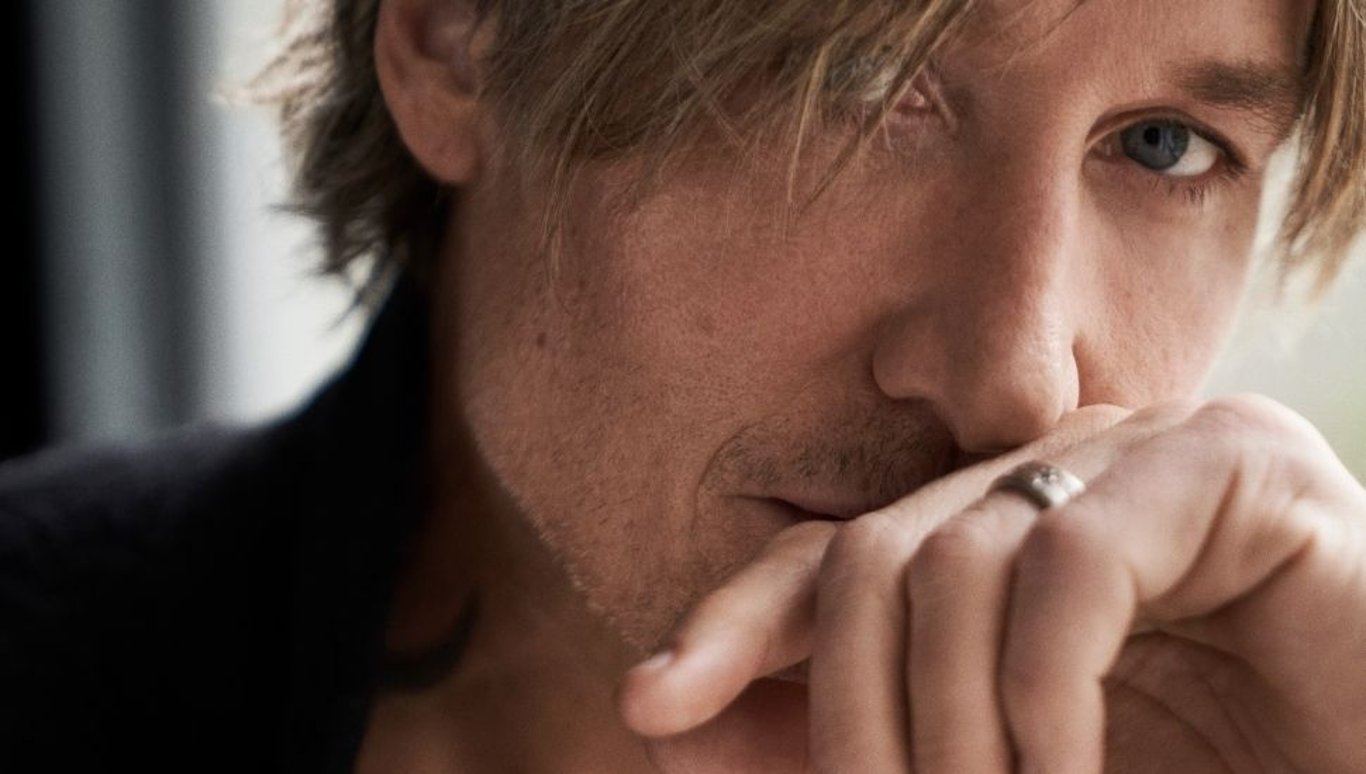
Keith Urban
By: Kasumi Borczyk
As one of world’s most popular country musicians, Keith Urban’s name is high irony.
Hailing from Caboolture, Queensland, Keith Urban cut his teeth in the country music scene winning the Golden Guitar at Tamworth’s Country Music Festival before moving to Tennessee to spend the next decade of his life proving himself in the heartland of country music. Urban plied his trade as a backing guitarist and vocalist, but it wasn’t until 1999 that he released his self-titled debut American album, achieving his first Number One hit on the charts with “But for the Grace of God”.
From then on, Keith Urban has maintained a steady beat of Number One hits on the country music circuit including “Somebody Like You”, “You’ll Think Of Me”, “You Look Good In My Shirt” and “Only You Can Love Me This Way”. In a radical departure from the hard-drinking, long-suffering opining of old-school country and blues, Keith Urban rebrands the down-and-out genre to incorporate elements of Y2K pop, creating an entire discography that is celebratory in nature.
With his signature caramel curtain-bangs and soul patch, Urban sings with a kind of wholesome, apple-pie optimism. His lyrics are rarely about having ‘lost his love’ or having ‘given up the fight.’ More often than not, Urban croons about how “You’re My Better Half”, about the “Long Hot Summer” and “Who Wouldn’t Wanna Be Me?” It’s no surprise that Urban has come to represent to his many loyal fans a kind of protestant work ethic and a fundamental belief in self-improvement.
Part of this image, of course, is his high-profile, long-term power-coupling with Nicole Kidman. The pair met in 2005 at the G’day LA event and began dating shortly after. They went on to have two daughters together and, often appearing in viral videos expressing public displays of affection towards one another, remain one of Hollywood’s most dignified upholders of hard-work and family values.
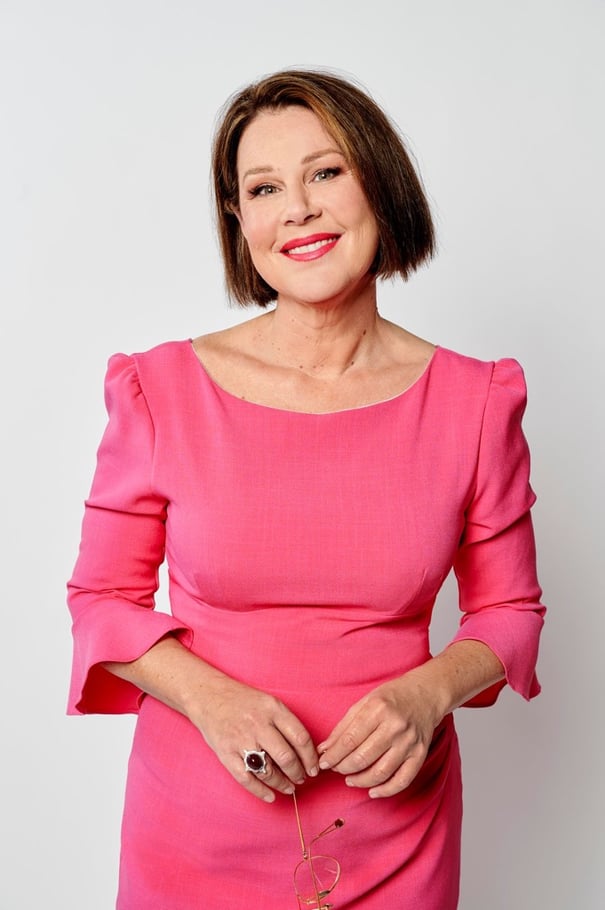
Julia Morris
By: Vivienne Kelly
Julia Morris is having a renaissance — or as some would say, the moment, recognition, acceptance and peace she has long deserved.
The comedian, presenter and media personality — who jokes she’s had “75 years in the business” — has been a staple of our screens, comedy circuit and national identity for some time.
Now, however, she’s trying to ditch the people-pleasing. She wants to set a better example for her two daughters on what happiness can and should look like. She’s walked away from a toxic marriage. And she’s having another go at life.
With that confidence and calm, combined with her charisma, more and more people are recognising just what a national treasure Julia Morris is.
People young and old may recognise Julia from her comedic, almost caricature, performances hosting I’m A Celebrity, Get Me Out of Here. But she actually first appeared on our screens back in 1985, when she was just 17. She sang "Holding Out for a Hero", tying for first place on the talent show New Faces. From there, she later appeared in the iconic Full Frontal, and regularly appeared on everything from Thank God You're Here, Good News Week, The Project, Have You Been Paying Attention?, Rove Live and the first season of Taskmaster Australia.
She also reminded the country of her singing chops, by taking on The Masked Singer, and is ready for a new era on I’m A Celebrity without her long-term co-host Dr Chris Brown.
Fellow comedian and presenter Em Rusciano is full of praise for Julia, noting that despite the fun and frivolity she projects, she’s actually also inspiring for everything she’s been through and just how hard she works.
“If people knew what I know about your life now and I would never, ever breathe a word… I’m sitting opposite a woman — I don’t know how she’s upright at the moment,” Em said to Julia on a chat on the Emsolation podcast. “You’re my hero.”
In response, Julia enthused: “I’m so excited to be alive now.”
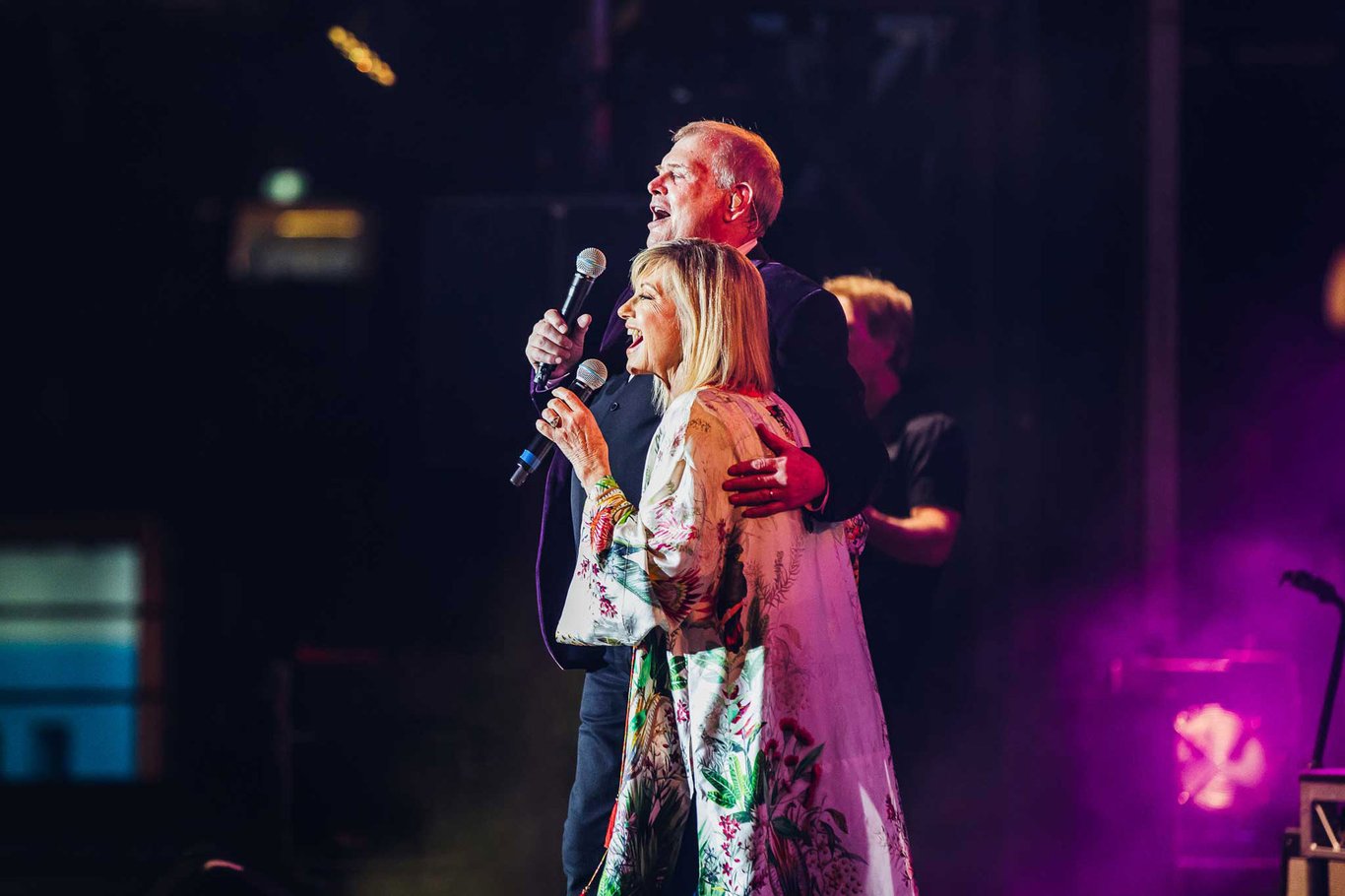
John Farnham
By: Vivienne Kelly
Thousands of people are screaming. In despair. In desperation. In protest. But also in joy. In harmony. In hope.
It’s Sunday, February 16th 2020, and Australia’s year has got off to an appalling start. It was, it turns out, to be a downward trajectory that would continue for weeks, months and years, with more natural disasters, a pandemic, lockdowns, economic uncertainty, and a country divided by policy, politics and a holidaying Prime Minister. But we didn’t know that yet
On this day in February 2020 at the Fire Fight Concert for National Bushfire Relief in Australia, the devastating, seemingly never-ending bushfires are front of mind, and it seems unimaginable that something worse than this could be just around the corner.
The 75,000-odd crowd do not know the fires, the floods and the furore that is to come. They do not know COVID-19 will change the course of history. Or that this will be one of the final massive gigs in Australia before the country is plunged into lockdown after lockdown. (Indeed, just twenty-eight days later, New South Wales cancelled all events with more than 500 people and only four days after that international borders were closed).
What they do know is this: The music and arts are often one of the first industries to activate and act when disaster strikes. They pull out all the stops. Donate. Perform for free. Bring people together. Celebrate and commiserate.
They also know the power of John Farnham, as one of our greatest and most enduring live performers. And on this day in 2020, John did what he does best — sing his guts out and inspire people to get on their feet and do something.
He is the closing act of the relief gig, and follows acts including Queen and Adam Lambert, k.d. lang, Delta Goodrem, Grinspoon, Alice Cooper, Amy Shark and Baker Boy.
He performs "Age of Reason", "Pressure Down", "Two Strong Hearts", "That's Freedom", and, of course, the powerful (and political) "You're the Voice", alongside Indigenous performer Mitch Tambo.
It is a unifying and uplifting moment as tens of thousands of people collectively declare they aren’t going to sit in silence, and they certainly aren’t going to live in fear.
Such is the power of the icon that is John Farnham.
In 2020, he can bring an unwell Olivia Newton-John out of a hiatus and onto the stage. He can, after decades in the business, still command the crowd and be the closing act for a bill already steeped with talent both old and new. He can, thirty-three-odd years after its release, still inspire a crowd with the iconic anthem “You’re the Voice”.
Now, just three and a half years later, almost everything has changed — except his icon status.
Olivia Newton-John, his long-time collaborator and friend, passed away on Monday, August 8th 2022. Her duet with Farnham on stage at Fire Fight in 2020 was her last performance. Another constant in his life, talent manager, entrepreneur and friend, Glenn Wheatley also died in February 2022. That same year, John was diagnosed with throat cancer. He underwent a twelve-hour operation to remove a tumour from his mouth, with part of his jaw also being removed.
It was, to put it lightly, a terrible year for a man who has brought such joy and inspiration to so many.
Now in late 2023, John’s in the headlines for two reasons — one is people seeking constant updates about his health and wellbeing. Will we see or hear from him again? Will he take to the stage? What did he think of the record-breaking documentary John Farnham: Finding the Voice?
The other headline-grabbing John moment in 2023 has been the use of his iconic song in a last-minute push for the YES vote in the (now defeated) Voice to Parliament referendum. Some people who didn’t support the ‘Yes’ movement felt betrayed. Here is a song they knew, they loved, they had connected their own meaning to, being used for something they personally did not endorse. “You’re the Voice” became a political football, a topic of morning TV debate, and in some cases, a reason people felt betrayed, while others felt inspired.
The Uluru Dialogue co-chair, and one of the architects of The Voice, Professor Megan Davis, said prior to the referendum that “You’re the Voice” is the nation’s unofficial anthem.
“I was in primary school when it was released and, as a young girl, instantaneously felt the power of its message about agency and walking together,” she said.
Tim Wheatley, son of the late Glenn, also noted the power of the song.
“‘You’re the Voice’ is not aligned with any political party. It is aligned with humanity. It’s a song for all Australians. Always has been, always will be,” he said.
“Win or lose this referendum, this song will forever remain on the right side of history.”
Such is the power and passion an icon such as John can ignite. People want him fully recovered so they can hear him belt out his agenda-setting, game-changing power ballad — but people across the political and social spectrum also feel they own and understand the song’s meaning.
His sons though are more focused on the positive — the success of the Finding the Voice documentary, and discovering the extent of the impact their dad has had.
“I’ve just enjoyed seeing how many people love dad. That blows my mind, and it’s just not an older generation. It’s every single generation and it still trips me out,” Robert and James say of the film’s success.
“Dad’s a very real person in general. So, for him, having someone approach him to do a movie about himself is probably his worst nightmare. He doesn’t see the big deal in himself. But it is nice to see the doco representing that as well and being as true as can be,” Robert reveals.
They won’t speak for him, or reveal his future, but they do insist he’s back to normal and he can still sing — which will be a relief to his fans.
One such fan is global superstar Celine Dion.
“I was there when [dad] met Celine, and that was one of the coolest things I’d ever seen,” son James recalls. “We were in Canada and we were getting on a plane to go somewhere and, literally, Celine Dion ran across the airport screaming ‘John!’ This is the first time that they’d met, and she’s sprinting across the airport with her husband, and she fangirled over our dad.”
Another is Chris Martin from Coldplay, who met John when he was (once again) giving his time over to a bushfire relief concert — in this instance, 2009’s Sound Relief.
Chris says John is always generous with both his time and his voice.
“For the concert in Sydney he really came and gave us the best moment. It was so fun to be his backing band, and he and the song [“You’re the Voice”] felt big and resonant enough for the occasion in a way that perhaps we didn’t. Off stage he was extremely sweet and I just felt so grateful for him,” Chris tells Rolling Stone AU/NZ.
Mega Australian export and fellow icon Keith Urban says there’s just something different about John.
“With that celestial gift of a voice he was born with, he sings from a very human place,” Keith tells Rolling Stone AU/NZ. “That may sound obvious to some people, but there are some singers with equally extraordinary voices, but you just don’t feel them the way you do with John.”
Keith cites songs including “Playing to Win”, his cover of “Help”, “Age of Reason” and “Please Don’t Ask Me” as among his favourites, but says the emotion and phrasing of “Burn For You” gets that particular track across the line into the number one spot for him.
Any time he can see John perform live though, is a good time.
“I feel that John has always been a phenomenal example of constantly reaching to make great music, work with great people, and bring that spirit of hope, levity, humour and passion to not only his records, but to audiences every single time he hits a stage,” he says.
Plus, Keith says, there’s just something so “Aussie” about “Our John” (even though, yes, he was born in Essex, England).
“For me, one of the enduring attributes of Aussies in general, is our tenacity, our determination and resilience. When you look at John’s career — man, do you sure see that in spades spanning decades,” he says.
“[Aussies love him] because he’s so Aussie. It’s a lifestyle, an attitude, a way of being with your priorities, your family, your friendships. I love him.”
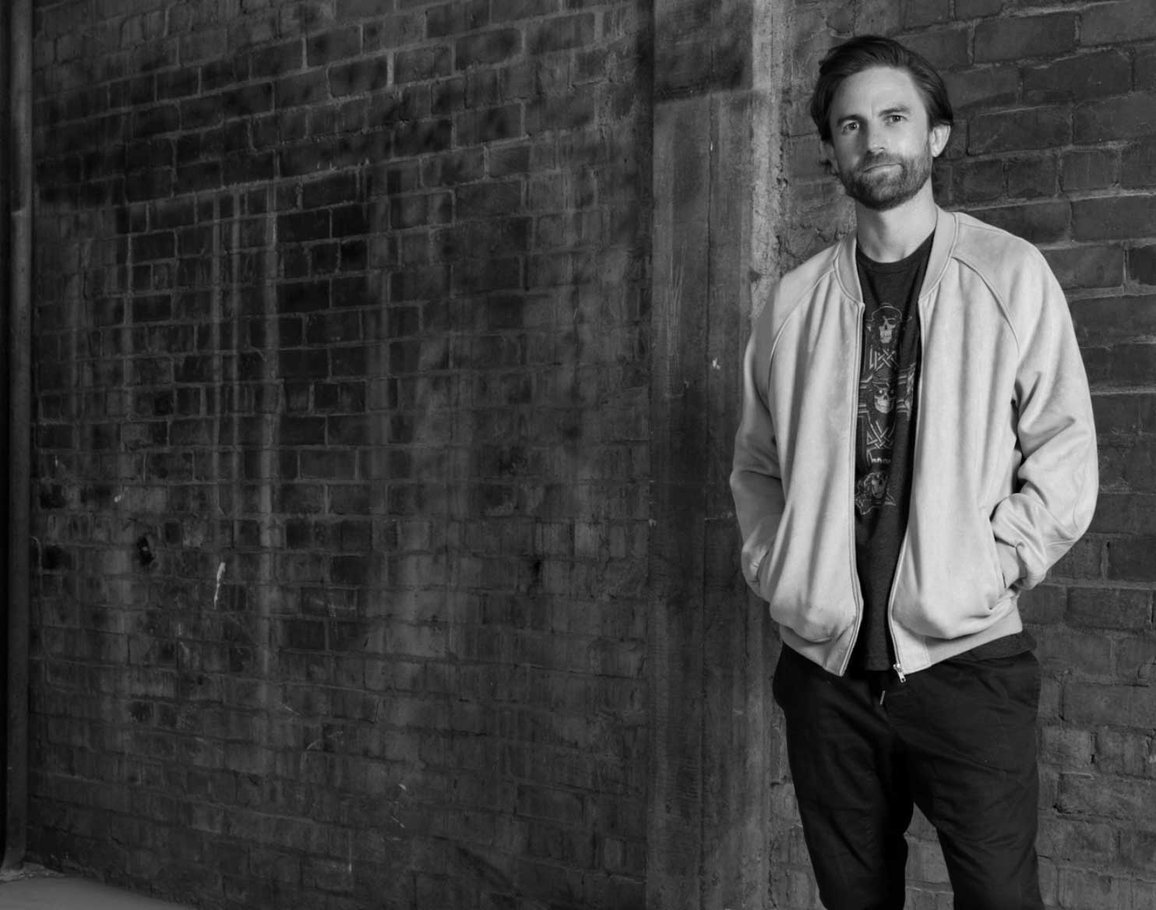
Joel Little
By: Martyn Pepperell
Long before his global success with Lorde and Taylor Swift, Joel Little’s origin story began in 1998.
In January 2014, Ella Marija Lani Yelich-O'Connor (aka Lorde) and the songwriter, guitarist and producer Joel Little were awarded Song Of The Year at the 56th Annual Grammy Awards for their era-marking single “Royals”. By the time they received the hallowed gramophone trophy, “Royals” was already a runaway success, dominating sales and radio charts across the globe. For Little, it was the culmination of a journey that began in 1998, when he attended the Vans Warped Tour in New Zealand and was inspired by the Californian punk scene, particularly blink-182, NOFX, and Lagwagon.
Between 2001 and 2008, Little played in the Auckland pop-punk band Goodnight Nurse, who released two albums and scored six Top Forty hits. As the new millennium's first decade drew to a close, Little found himself co-writing and producing for the New Zealand electropop duo Kids of 88. The producer's chair suited his disposition, and soon enough, he was working with a pre-fame Lorde at his Golden Age studios.
In the wake of the global success he experienced with Lorde, Little produced the Nelson-raised minimalist-pop duo Broods and began to work with an array of UK and US stars, including Sam Smith, Ellie Goulding, Khalid, Imagine Dragons and Shawn Mendes. By 2019, he was in the studio with American megastar Taylor Swift and featured extensively in her 2020 documentary Miss Americana, where his empathetic songwriting and production skills shined.
In 2022, Little and his family opened a community-focused recording studio and live music performance space called Big Fan in Auckland’s Morningside to help foster the next generation of musical talent in New Zealand. Earlier this year, Goodnight Nurse reunited to open for My Chemical Romance. A decade removed from his work on Lorde’s debut album, Pure Heroine, Little shows no signs of gathering any rust or dust.
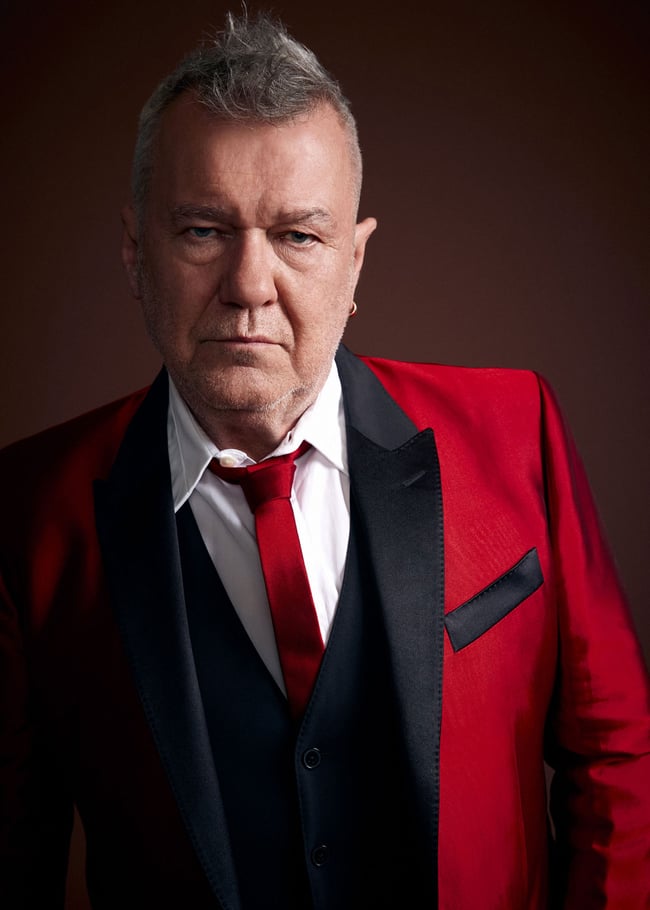
Jimmy Barnes
By: Vivienne Kelly
A man at The Milton Hotel on the NSW south coast grabs my hands. He says he’s never going to wash his hands again.
A bold statement in a world that hasn’t quite come to grips with its recent pandemic past.
Two people in a rural pub. Holding hands (one less enthusiastically than the other).
I disagree with this man about basically every political, social and moral issue of the day. We are faced with what many would call irreconcilable differences, but we are engaged, not enraged.
We have something in common. Music.
He is a Cold Chisel super fan who thinks Don Walker is one of the country’s most talented and under-recognised songwriters, and he’s just found out that I’m a girl in a bar with a laptop, who is, at this very moment, writing an article about an Australian music icon.
Rock God. Aussie legend. Entertainment marvel. Some would say, given his previous lifestyle, medical marvel.
“Not fucking Jimmy Barnes?” He can’t believe his luck. He wants to hold (and guide) the hands that write it. And he wants to get a message to Jimmy.
“You’re an icon.”
Jimmy Barnes is, after all, an ARIA Hall of Fame inductee, with hits including “Working Class Man”, "Flame Trees" and "Khe Sanh".
His accolades and admirers stacked up as he went wild behind the scenes — balancing a grand piano precariously on the railing between two floors in a hotel with Rod Stewart. Taking his clothes off in front of a giant crowd, and then promptly forgetting about it. And they’re just the stories he remembers.
But it’s his enduring impact with people in bars. People at gigs. People connecting despite politics, age and other invisible barriers, that make Jimmy Barnes an icon worth holding hands for.
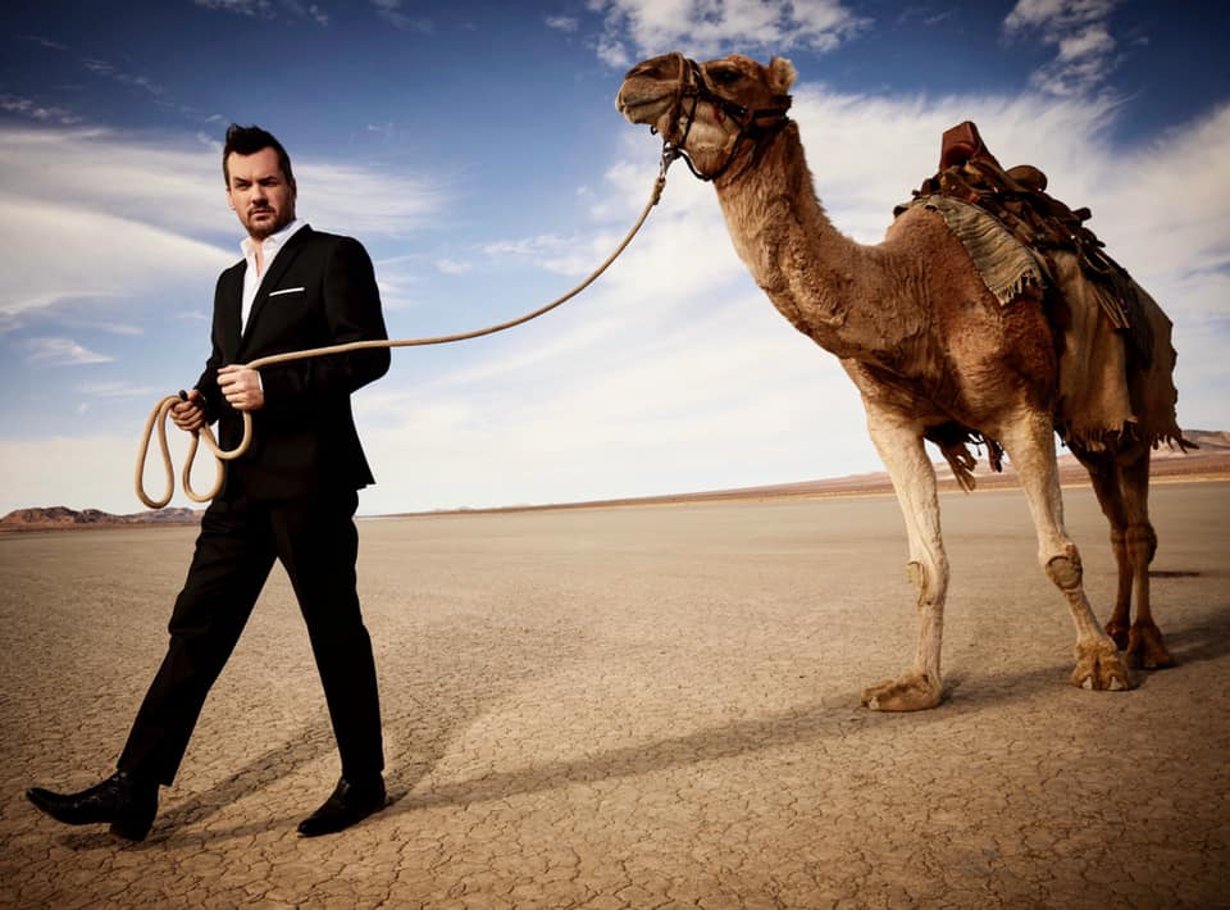
Jim Jefferies
By: Zanda Wilson
Despite spending years performing stand-up after dropping out of university, Jim Jefferies first gained notoriety after being attacked during a set at the Manchester Comedy Festival in 2007.
Rather than accept the incident as a setback, Jefferies (real name: Geoff James Nugent — bet you didn’t know that!) did the most larrikin thing he could think of and incorporated it into his act.
Ultimately though, it was the release of his HBO special I Swear To God in 2009 that catapulted Jefferies into the public consciousness, particularly in the US, where he’s become one of the best-known Australian comedians on American TV.
After his moderately successful FX series Legit in the early 2010s, The Jim Jefferies Show debuted in 2017 and became a huge hit for its three-season run on Comedy Central — and off the back of its success, Jefferies released three Netflix stand-up specials. He has also appeared in four feature films, and co-hosted the popular I Don't Know About That podcast since 2020.
From his viral takes on US gun control to aeroplane etiquette, Jefferies has carved out a unique persona with his observational humour, and his accent allows him to take the piss out of Americans more than anyone with an American accent ever could (and occasionally get him into trouble for things like comparing gun owners to slave owners). Undoubtedly, Donald Trump’s rise to, and time as the President of the United States, provided Jefferies with more ammo than he could ever have dreamed of.






























